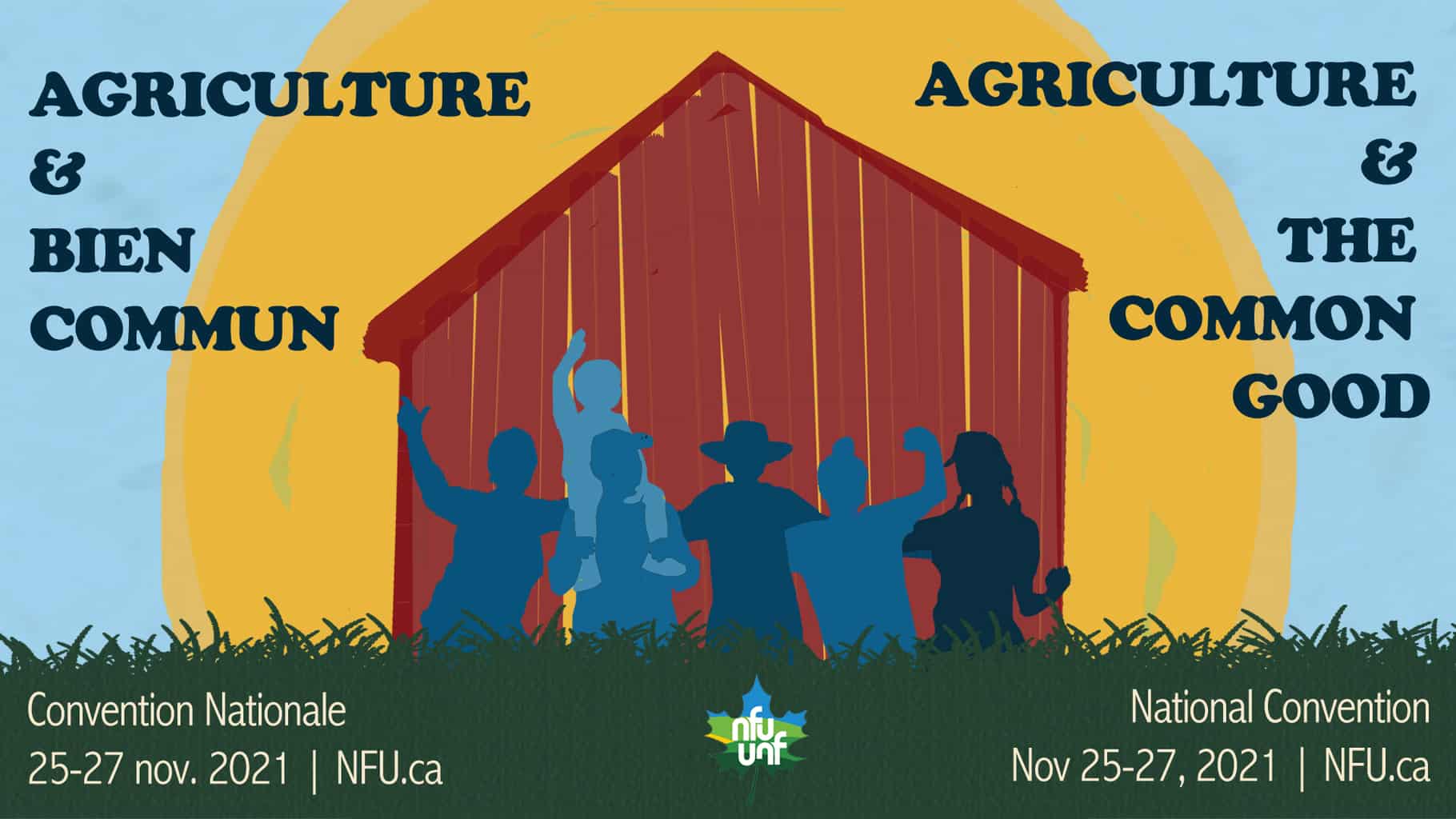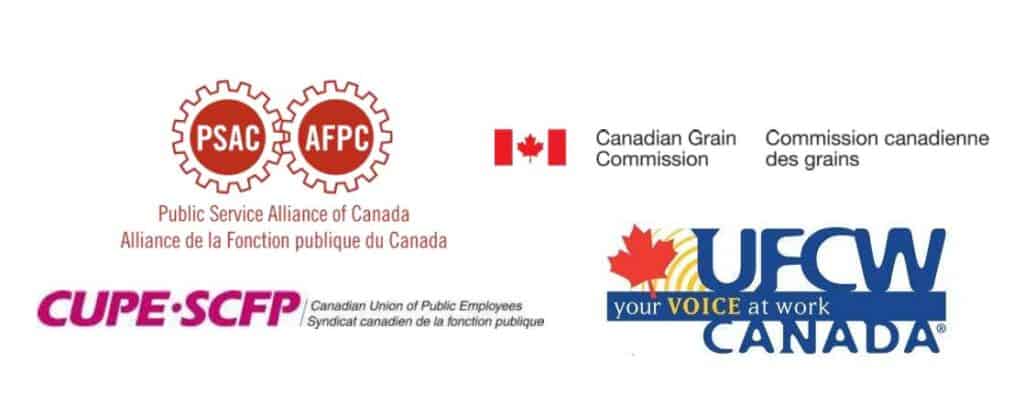
Agriculture & the Common Good
Keynote address
Justice Is Our Only Salvation:Leticia Ama Deawuo
Before joining SeedChange as Executive Director in 2021, Ama spent fifteen years as a leading activist for food sovereignty and food justice, and four years as the Executive Director of Black Creek Community Farm, where she worked towards greater food justice with the Toronto community of Jane-Finch. She was instrumental in the creation of a number of initiatives in Toronto, including Jane Finch On The Move, Jane Finch Action Against Poverty, Jane Finch Political Conversation Café, Black Creek Food Justice Network, and Mothers-In-Motion. Ama is currently completing a Master’s Degree at York University, looking at how decolonization, agroecology, and the expertise of women elders in small-scale farming communities can support much-needed shifts in the way we think of our relationships with each other and with other living beings. (she/her, Ottawa)
Program Highlights
Thursday November 25:
Panel Presentation: Envisioning Agriculture for the Common Good
Severine von Tscharner Fleming is a farmer, activist, and organizer based in Downeast Maine. She is a founder and board member of Agrarian Trust and a director of the Greenhorns, a 10-year-old grassroots organization that recruits, promotes, and supports the incoming generation of famers in the United States. She is also co-founder and board secretary of Farm Hack, an online, open-source platform for appropriate and affordable farm tools and technologies, as well as a founder of the National Young Farmers Coalition. She serves on the board of the Schumacher Center for New Economics, Eat Local Eastport Cooperative, and on the advisory board of Savanna Institute. On top of all this, she runs Smithereen Farm, certified organic wild blueberry, seaweed, and orchard operation which hosts summer camps, camping, and educational workshops. Severine attended Pomona College and the University of California at Berkeley, where she graduated with a B.S. in Conservation/Agroecology.
Katherine Strand is a PhD candidate at McGillUniversity in the Department of Anthropology. Her ethnographic and historical research within dryland farming communities began in the High Plains of the United States and now extends into the Prairies of Canada. Her work focuses on the historical development of concepts within agriculture that continue to shape farming practices including soil conservation. She focuses on how knowledge and technology move from the research stage to on-farm adoption by producers. Her dissertation work, based in southwestern Saskatchewan, explores the relationship between the farming community and the Swift Current Research and Development Centre from the time it was established in 1920. Katherine grew up on a sheep and cattle ranch in south central Wyoming but currently lives and farms with her partner near Fox Valley, SK. In addition to producing organic grains, they also raise bison for direct-to-consumer meat sales.
Bryan Dale is an Assistant Professor in the Department of Environment and Geography at Bishop’s University, which is located on the traditional and unceded territory of the Abenaki people, in Sherbrooke, Quebec. He completed a Postdoctoral Fellowship with the Culinaria Research Centre at the University of Toronto Scarborough, and a PhD in Human Geography at the University of Toronto. His research focuses on food sovereignty and the potential expansion of ecological farming in the Canadian context, which includes looking at the various political-economic and cultural considerations related to food system transformation. Bryan has been an associate member of the NFU for several years, during which time he has been involved with Local 305 (Toronto-York-Peel) and various committees. He is also a non-farmer member of Union Paysanne, Canada’s other member organization belonging to La Vía Campesina.
Friday November 26:
Workshop: How to advance the Common Good through Democratic Action
Kevin Shimmin has been a union organizer with UFCW Canada for 20 years. Prior to his organizing activity, Kevin completed an MA in Work & Society with a focus on strategies to unionize migrant agricultural workers. During the late 1990s, he lived in Sri Lanka where he worked with underground human rights organizations during the war there. Today, Kevin continues to be active in peace and human rights groups globally.
Nohora Castañeda is a workers’ rights advocate in her current role as National Representative for United Food and Commercial Workers Union Canada (UFCW Canada). As a national representative, Nohora assists workers in getting union representation, facilitates workshops, and actively participates in community engagement programs. As a labour activist, she is fully committed in advancing issues related to gender equity, food security, allyship, intersectionality, truth and reconciliation and ending workplace discrimination.
Panel Presentation: NFU working for the Common Good
David Gehl grew up with his brothers on a southern Saskatchewan grain farm, originally homesteaded by his grandparents. David continues his family’s tradition of involvement in progressive movements in the interests of farmers and workers. He studied agriculture at the University of Saskatchewan specializing in field crop management and plant breeding. After university he worked for Agriculture and Agri-Food Canada, including a twenty-five-year stint as Officer-in-Charge and Head of the Seed Increase Unit at the Indian Head Research Farm where he was responsible for production and distribution of Breeder Seed of cereal, pulse, oilseed and forage varieties developed by AAFC plant breeders. He also advised the Saskatchewan Seed Growers Association, represented AAFC on the Saskatchewan Advisory Committee on Grain Crops, and participated in variety registration Recommending Committees. Since retirement, has remained active in the community, and resides in Indian Head with his wife Roberta, a teacher.
Tim Dowling co-manages 80 head of grass-fed beef cattle calving-to-finish on Howe Island, Ontario. He focuses on managed rotational grazing to enhance soil life and animal productivity. He is the NFU’s National Livestock Committee chairperson, and a member of the abattoir working group in Region 3 (Ontario).
Brooke Hayes is a PhD student at the University of Victoria and chair of the NFU’s Mental Health Working Group, where she brings twenty years of experience working with the BC public service in a variety of unique ministries. Brooke’s most recent role was as Executive Director with the Ministry of Agriculture, where she led teams tackling climate change, marketing, land use planning, innovation, and soil, air and water quality programs, among others. The impacts of climate change on farms and farmers sparked a deep curiosity and passion for agriculture that has inspired a return to school, where Brooke is actively investigating the relationships between healthy soils and healthy farmers in BC and beyond.

Music Social
Scott Palmater began playing when he was 14 and since then has spent decades playing live music on guitar, drums and vocals. He has opened for Lawrence Gowan and April Wine. His music is an eclectic mix of recognizable tunes from the 70’s, 80’s, 90’s and beyond that will be sure to have your toes tapping and the urge to sing along will kick in. Born and raised in New Brunswick with roots firmly planted in the Maliseet and Mikmaq communities, now living in Kingston, Ontario, Scott’s smooth voice can be heard belting out everything from The Tragically Hip to Tom Jones in one province or another!
Come, bring a drink, and enjoy Scott’s music and visit with your NFU friends!
Saturday November 27:
Panel Presentation: Advancing the Common Good in Quebec and Africa
Thibeault Rehn is a material sciences engineer, with a Masters degree in Environmental Economics. An environmental activist, he co-founded and is now coordinator of the organization Vigilance OGM. He is interested in issues related to GMOs and pesticides as well as in citizen mobilization, which he considers essential in order to obtain a more fair and ecological society. He also worked for several years at Greenpeace Québec as a volunteer manager.
Eric G. Chaurette is a co-manager at Inter Pares. Eric works on issues related to economic justice, food sovereignty, landgrabs, and agroecology and supports programs in Asia, Africa, and Canada. Since 2005, when he joined the organization, Eric has worked to build greater linkages among social movements for systemic change. Eric has coordinated multiple farmer-to-farmer exchanges, farmer-led and action-research projects on landgrabs, and the impact of new technologies in agriculture. More recently, Eric has been coordinating efforts to strengthen women-led agroecology in West Africa as a means to foster greater gender equality and food security and resilience.
Farmer Panel: Cultivating the Common Good
Celeste Smith (she/her) is Oneida from Six Nations of the Grand River Territory. An intergenerational trauma survivor, her life’s mission is to help Women/Gender Diverse People rebuild their connections to the land and their lifeways. She is a seed steward, traditional agriculturalist and former professor of Traditional Ecological Knowledge (TEK) at Niagara College, grounded in her family’s agricultural traditions, her own gardening experience, and her ongoing participation in ceremony and mentorship with traditional healers and agricultural Knowledge Holders. She works on Indigenous Food Sovereignty, Land Justice and Indigenous Human Rights through Cultural Seeds (culturalseeds.com) and Ga Gitigemi Gamik (wewillplantlodge.com), Peel Food Action Council and several National and Provincial Boards. Celeste’s academic experience at Niagara College, Brock University and Columbia University NYC has also contributed to her Indigenous Rights and Policy and Land Rights understandings.
Joel Mowchenko manages his family’s organic grain and cattle farm near Mossbank, SK in Treaty 4 Territory. He’s passionate about local food systems and has experimented with various means of getting their farm products directly to local folk including selling to local stores, restaurants, and farmer’s markets, even going so far as to venture into the restaurant business himself. He first connected with the Treaty Land Sharing Network in the fall of 2019 and has since attended several network events, registered his farm with the network, and hosted a native prairie tour in 2020
Mark Trealout is the farm manager and instructor at the Hayes Farm in Fredericton NB – a community teaching farm, established in 2018, that aims to foster a thriving and resilient culture of local food growers, eaters, and supporters. Their human-scale regenerative farming model advances food security and food sovereignty, environmental accountability, and prosperity of purpose in the local community by integrating Indigenous wisdom and food ways, principles of land-based learning, and deep-rooted connections to the land. The Hayes Farm offers internships, volunteer opportunities, pay-what-you-can CSA shares, and supports others in replicating their model. Prior to joining Hayes Farm, Mark operated a mixed organic farm in Woodville ON, Grassroot Organics, and a food distribution business, Kawartha Ecological Growers, where he brought together several small family farms to provide seasonal local farm products, year-round, to restaurants, CSA members, retail stores and farmers’ market in and around the Toronto area.

Virtual Book Table! Buy your books from Saskatoon’s independent bookseller Turning the Tide! They normally table at our Saskatoon conventions. This year they have curated a special selection for us at their online bookstore. Use the promo code NFU2021 at the checkout to get 50% off shipping on orders over $50 or free shipping on orders over $75.
Convention Sponsors:
